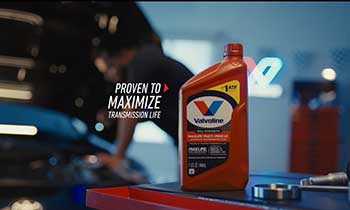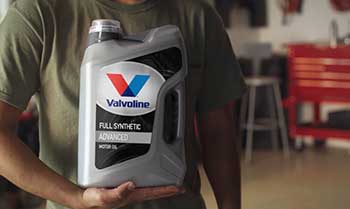When it comes time to change your vehicle’s motor oil, you have a choice between conventional, synthetic blend, and full synthetic oils. Two of the most popular options are Valvoline MaxLife and full synthetic motor oils. But what exactly is the difference between these two types of engine lubricants?
And which one is the better choice for your vehicle? This comprehensive guide examines the key differences between Valvoline MaxLife and full synthetic motor oils, including their performance, price, and ideal use cases.
A Brief Comparison Table
| Aspects | Valvoline MaxLife | Full Synthetic |
| Base Oil | Part conventional, part synthetic | 100% Synthetic |
| Price | $$ | $$$ |
| Cold Flow | Good | Excellent |
| High Temp Stability | Good | Excellent |
| Oil Change Intervals | Standard 3-5k miles | Long 10k+ mile intervals |
| Fuel Economy | Moderate improvement | Notable improvement |
| Engine Wear | Very good | Excellent |
| High Mileage | Recommended | Caution |
| Newer Engines | Good | Recommended |
| Performance Use | Not intended | Highly recommended |
What Is Valvoline Maxlife?
Valvoline MaxLife is a synthetic blend motor oil that contains both conventional and synthetic base oils. Synthetic blends combine some of the benefits of full synthetic oil with the lower cost of conventional oil.
MaxLife is designed for higher mileage engines over 75,000 miles. It includes seal conditioners to help reduce leaks and extra anti-wear additives to protect against engine wear. The advanced chemistry allows it to flow better at low temperatures while resisting oxidation and thermal breakdown at high engine temperatures.
Overall, Valvoline MaxLife aims to provide enhanced engine protection compared to conventional oils while costing less than full synthetic options. It carries certifications for API SN Plus and ILSAC GF-5 – meeting the latest industry standards for gasoline engines.

Pros of Valvoline MaxLife
- Affordable price: As a synthetic blend, MaxLife costs less than full synthetic oils while outperforming conventional options. This makes it a great value choice.
- High mileage formula: The advanced additives help reduce leaks, oil breakdown, and deposits in higher mileage engines.
- Smooth cold weather performance: Flows easily for fast lubrication in cold winter temperatures.
- Good oxidation resistance: Resists thermal breakdown and oil sludge buildup under high heat.
- Meets new API SN Plus specs: Backward compatible for older vehicles while meeting the latest API industry standards.
Cons of Valvoline MaxLife
- Not full synthetic: Does not have all the benefits in extreme temperatures and extended drain intervals as full synthetic oils.
- Not ideal for newer cars: Better options exist for newer, low mileage engines that do not need the high mileage additives.
- Marginal fuel economy: Full synthetic oils tend to have better mileage due to lower friction properties.
- Limited sport/performance use: Not designed for sustained high RPM, towing, or racing applications. A full synthetic is better for performance driving.
What Is Full Synthetic Motor Oil?
Full synthetic motor oils are engineered entirely from synthetic base oil stocks rather than crude oil. They outperform conventional and synthetic blend oils in nearly every aspect.
The highly refined synthetic base stocks have uniform molecules that slide past each other with less friction. Full synthetics also resist viscosity breakdown better at high temperatures while flowing freely at low temperatures.
They reduce engine wear, last longer between oil changes, and provide superior protection for new vehicles or performance applications. However, full synthetic oils come at a premium price over conventional and synthetic blend oils.

Pros of Full Synthetic Motor Oil
- Superior cold flow properties: Flows instantly for fast protection during cold starts.
- Excellent high-temperature stability: Resists viscosity breakdown and oil burn-off under high heat and heavy loads.
- Lower friction: Smoother lubrication reduces engine wear, boosts fuel economy.
- Longer drain intervals: Can often go 10,000+ miles between oil changes safely.
- Ideal for newer engines: Meets the demanding requirements of modern, tight-tolerance engines.
- Great for sports cars: Provides unmatched lubrication for high RPMs, towing, and extreme performance.
Cons of Full Synthetic Motor Oil
- Higher cost: Costs approximately 2X more than conventional motor oils.
- Overkill for older engines: The advanced lubrication is unnecessary for worn, high mileage engines.
- Slippery formula: Can potentially cause minor oil leaks in older, high mileage vehicles.
- Thinner viscosity: Not ideal for older engines with loose tolerances that benefit from thicker oil.
- Unnecessary for normal driving: Only required for extreme temperature variations or demanding conditions.
Also Read: Comparison Between Take 5 Oil Change And Valvoline.
Which Is Better For Your Vehicle?
So when it comes to choosing between Valvoline MaxLife or full synthetic, which oil is the best choice for your car or truck? Here are some guidelines:
- For older, high mileage vehicles, Valvoline MaxLife is likely the ideal fit. Its conditioners and anti-wear additives cater to engines over 75,000 miles.
- For newer engines under 50k miles, full synthetic oils will provide the most protection and performance benefits. They meet the demands of tight tolerances in modern engines.
- For vehicles with over 100k miles that still perform moderately well, a full synthetic is a wise investment. It will safely extend the engine life.
- For frequent towing, hauling, sports driving, or extreme climates, always opt for full synthetic for its exceptional stability and lubrication.
- For normal commuter vehicles and driving needs, MaxLife offers solid protection at an affordable price point.
- Consult your owner’s manual – some brands specifically recommend full synthetic oils for optimal performance and warranty coverage.
Frequently Asked Questions (FAQ)
No, Valvoline MaxLife is a synthetic blend motor oil. It contains conventional as well as synthetic base oils. This differs from full synthetic oils that only use synthetic base stocks.
The recommended oil change interval for MaxLife is 5,000-7,500 miles in normal driving conditions. However, it can often safely go around 8,000-10,000 miles between changes in modern engines. Always follow the vehicle manufacturer’s oil change guidelines.
For most older, high mileage engines past 100k miles, a synthetic blend like MaxLife is ideal. The additives cater to sealing leaks and reducing wear in worn engines. Full synthetics are very slippery and can potentially increase leaks.
Yes, full synthetic oils made purely from synthesized materials are superior in key areas like cold flow, high temp stability, engine wear prevention, and long-term durability compared to synthetic blends. However, synthetic blends offer solid performance at a more affordable price point.
Also Read: Choose Between Boostane Octane Boosters Premium And Professional.
Conclusion
Valvoline MaxLife and full synthetic motor oils both have their ideal applications and use cases for different vehicles. Choosing the right oil comes down to your engine’s age, mileage, and driving conditions. Modern and performance engines benefit most from full synthetics, while high mileage engines are better served by synthetic blends like MaxLife that include targeted additives.
Whichever you choose, always adhere to the oil and filter change intervals recommended in your owner’s manual. Quality oil is one of the most important investments you can make for long engine life.
